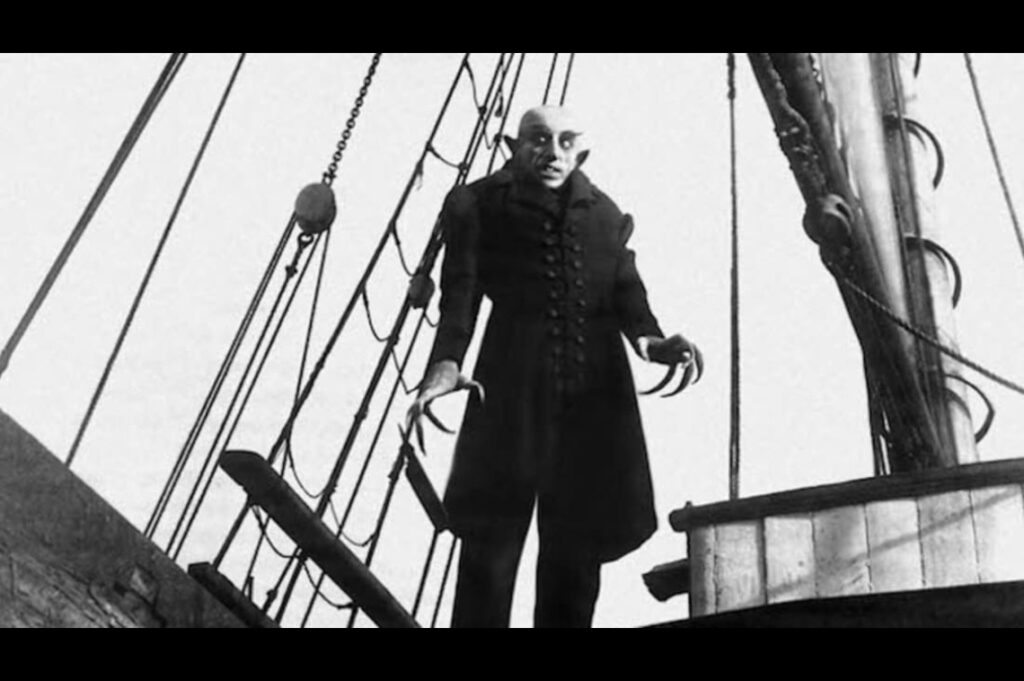
By Devin Meenan
Bram Stoker’s “Dracula” is indisputably one of the most influential horror novels ever penned–just this past month saw the release of the latest movie adaptation, “Nosferatu.” (This one is specifically a remake of the original “Nosferatu,” a silent film from 1922 which loosely adapted “Dracula.”)
What many people might not know is that a real estate transaction is central to the original story and most adaptations–Dracula buys property in London to move to, so that he can spread his evil beyond the Carpathian mountains. In either version, our protagonist ends up a captive in the Count’s castle because he is the estate agent sent to complete the transaction.
“Wicked” is not the only blockbuster with lessons for real estate professionals. You may never have a client as bad as the Count, but can “Dracula” and “Nosferatu” still teach you potential pitfalls to avoid?
Read the Contract’s Fine Print
In the wake of lawsuits facing the industry, buyer representation agreements have become standard operating procedure. These agreements stress transparency–both you and your client know exactly what you’re agreeing to when you sign it, ensuring no disputes or misunderstandings down the line.
In “Nosferatu,” a terrified Thomas Hutter (Nicholas Hoult) swiftly signs the deed that
Count Orlok (Bill Skarsgård) places in front of him. He signs it even though it’s written in Romanian and he can’t read a word of it. Surprise, the contract isn’t just to secure Orlok’s new property in scenic Wisborg, it also signs the soul of Hutter’s beloved Ellen (Lily-Rose Depp) over to him.
Hutter learned a harsh lesson that no matter how hard the pressure, it’s best to only give your signature when you’re absolutely certain it’s in your interest to do so–always verify, even the ones you trust.
“Nosferatu” itself is a lesson in the importance of putting your legal ducks in a row. The original silent film was made without consulting Bram Stoker’s estate (hence the title and character name changes), and when the copyright infringement was discovered, lawsuits followed.
If Your Gut Says a Deal is Bad, Listen
From the very beginning, Orlok’s deal is suspicious. He demands that Hutter make a six-week journey to his home to complete the transaction, which Hutter writes off as merely “eccentric.” During Hutter’s travels, he sees plenty of spooky stuff and even has his horse stolen, but he pushes on. The second he sees Orlok, he clearly knows something is wrong, but he still enters the castle–now, it’s too late to flee.
If you’re about to make a bad deal, the stakes could be lower (or at least less terrifying). Still, the lesson to take here is to listen to your gut before it’s too late to turn back. Does the seller seem suspicious? Does the deal sound too good to be true? Do you think you could get your client a better deal by looking elsewhere or holding back? Take a step back and consider things before committing.
When Suspicious, Background Check Your Clients
Speaking of suspicion, meeting unfamiliar people is a prerequisite to be an agent–so be sure to prioritize your own safety. During “Nosferatu,” Hutter completely ignores that—walking into a trap; a castle in the middle of nowhere, with high walls, locked doors, freezing weather and packs of wolves.
Did you get a seemingly promising lead at an open house? Do some digging before pushing it further. Social media makes it easier than ever to be your own investigator–if someone has a significant and consistent online presence, it’s likelier they are who they say they are. If a prospect insists on meeting in a certain place, or even seems hesitant to meet in-person, that in and of itself could be a red flag to consider.
Client referrals from another agent naturally come with a greater sense of trust but some extra screening won’t hurt. Hutter is referred to Orlok’s case by his boss, Mr. Knock (Simon McBurney), and learns too late he couldn’t take his word as gospel.
Consider Work-Life Balance and How to Prioritize
Hutter agrees to go to Orlok’s castle in “Nosferatu” because he views the deal as his big break. Once he brings in the signed deed (and healthy commission along with it), he’ll be rewarded with a promised promotion at his firm and the salary worthy of a newly wed young man. Ellen begs him not to go, but Hutter says he’s securing their future together by leaving.
How disastrously things play out for Hutter unveils a timeless lesson; focusing on work and telling yourself it’s for your loved ones can deprive you of time with them.
Setting Clear Boundaries is Good for Your Health
Proper relationship-building with your clients is an essential agent skill. Small talk is a good disarmer. Make a good impression on your clients, and deliver for them, and that can win you referrals or even enduring friendships. Yet if your client starts pushing professional boundaries (invasive questions, calling you at three o’clock in the morning etc.), it’ll be healthier for you both if you reaffirm them. Hutter proves unfortunately unable to do this.
From the moment they meet, Hutter is too scared of Orlok to ward him off. In particular, he hands over his locket of Ellen to Orlok, who refuses to give it back (symbolizing his larger intentions). Orlok comes to Wisborg not only to resettle, but also to stalk Ellen.
Agent education stresses the importance of networking, and that can make every bridge burnt feel like a failure on your part. It’s important to remember, though, to be mindful of who you want or let into your network.



